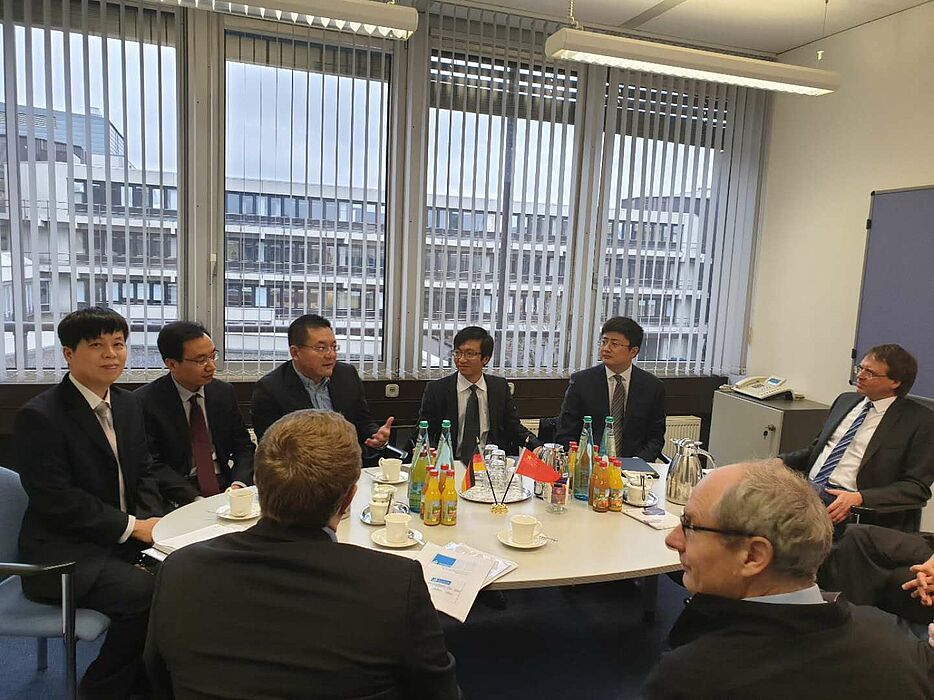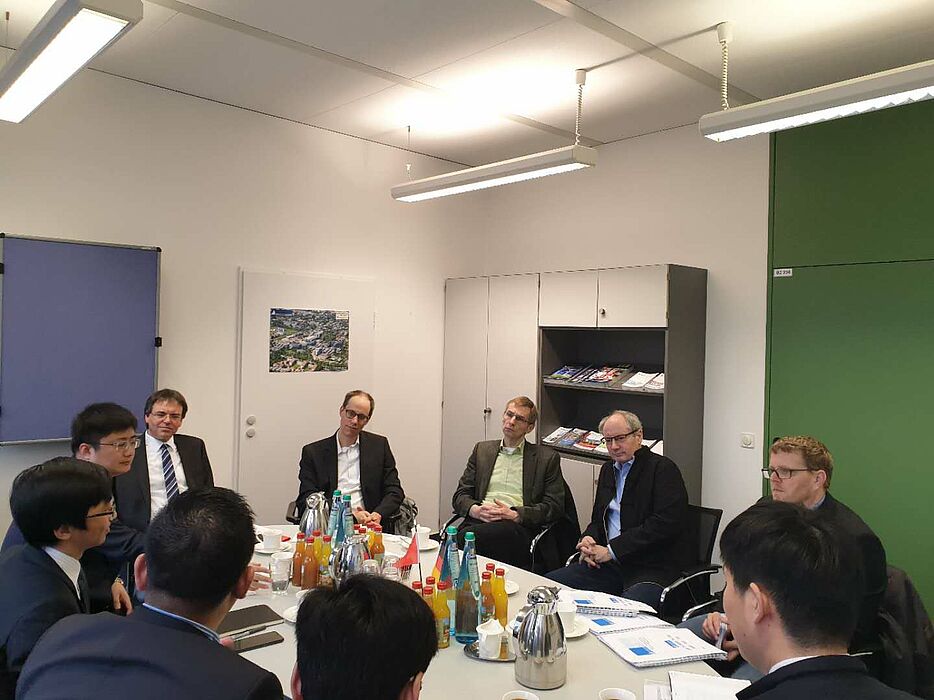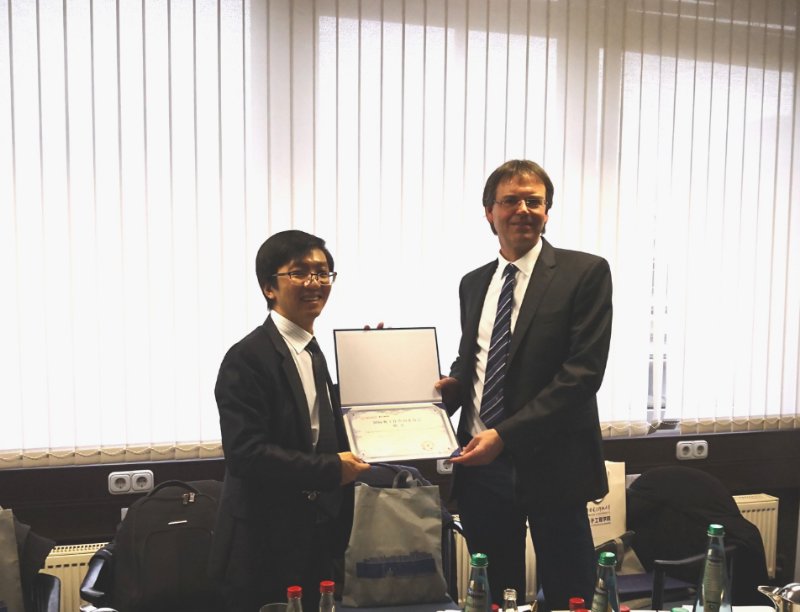On February 11th, the Dean Prof. Dr. Gushun Cai, School of Electronic Engineering, led a delegation from the Chinese Xidian University visiting Paderborn. Xidian University is based in Xi'an, the capital of central China's Shaanxi Province. Xi'an has over 10 million inhabitants, was the capital of several Chinese imperial dynasties and is also known as the starting point of the Silk Road.
Founded in 1931, Xidian University is a top Chinese university specializing in electrical engineering, electronics and information technology. In addition, the Xidian University is a partner of the University of Paderborn, with whom the Confucius Institute Paderborn was founded in 2015.
The Confucius Institutes are developed and promoted worldwide by the Chinese umbrella organization HANBAN (Confucius Institute Headquarters) together with local partners. The Confucius Institute in Paderborn, which is the point of contact for the entire East Westphalia-Lippe region within the framework of Chinese-German cultural exchange, is the nineteenth of its kind in Germany. In Paderborn there is a particularly high level of interest in cooperation with China in the areas of education, science, business and society. The establishment of the institute was largely convinced by the universities of Paderborn and Xidian, the city of Paderborn and the municipal development association "Paderborn" in close cooperation with the sponsoring association Konfuzius-Freunde Westfalen e. V. funded. An overview of the various offers and events of the Konfuzius Institute Paderborn can be found on the website www.konfuzius-paderborn.de.
The delegation from Xidian University, consisting of the Dean Prof. Dr. Gushun Cai, representative of the administration Prof. Dr. Jinshan Ding, Head International Relations and Professor for E-Techn. Applications in MM-Wave & THz Technology, Prof. Dr. Maoguo Gong, Head Research Group Artificial Intelligence & Big Data Technology, Prof. Dr. Huiqing Zhai, Head Research Group Microwave/Antenna Technology, was supported by Prof. Dr. Torsten Meier, Vice President for International Relations, and Prof. Dr. Wolfgang Bremser, German Director of the Chinese-German Campus, by representatives of the Institute for Computer Science and the Institute for Electrical Engineering and Information Technology Prof. Dr. Holger Karl, Vice Dean and Head of the Institute for Computer Science, Prof. Dr. Jens Förstner, Theoretical Electrical Engineering, Prof. Peter Schreier, Signal & System Theory, and Dr. Hoang Trang Tran-Thien, Chinese-German Campus Coordinator.
Talks at the University of Paderborn in the morning were followed by visits to the research laboratories in sensor technology on the UPB campus and in circuit & microelectronics at the HNI. Mao Tie, the Chinese director of the Confucius Institute, showed the Chinese delegation the Heinz Nixdorf Museum Forum, the future mile Fürstenallee and the city center and explained the history and the cultural and economic development of Paderborn to the guests. The Confucius Institute plays a crucial role; in addition to imparting language and culture, it acts as an important motor for intensifying contacts with China. During the meeting, a cooperation in the form of a "summer school" was discussed, among other things, in which students from Xidian University can come to Paderborn for about 2 weeks to learn about the University of Paderborn, in particular the focus in research and teaching, and the city and get to know the area. Here, too, the Confucius Institute will make a decisive contribution to future cooperation.
The chairman of the School of Electronic Engineering, Prof. Dr. Gushun Cai and the entire delegation from Xidian University liked the visit program very much, thanked them warmly and said that the successful cooperation that had started should be continued and intensified. He invited everyone involved to visit Xi'an.
Prof. Dr. Gushun Cai also presented a certificate of appointment as a member of the International Advisory Committee of the School of Electronic Engineering to Prof. Dr. Torsten Meier.



